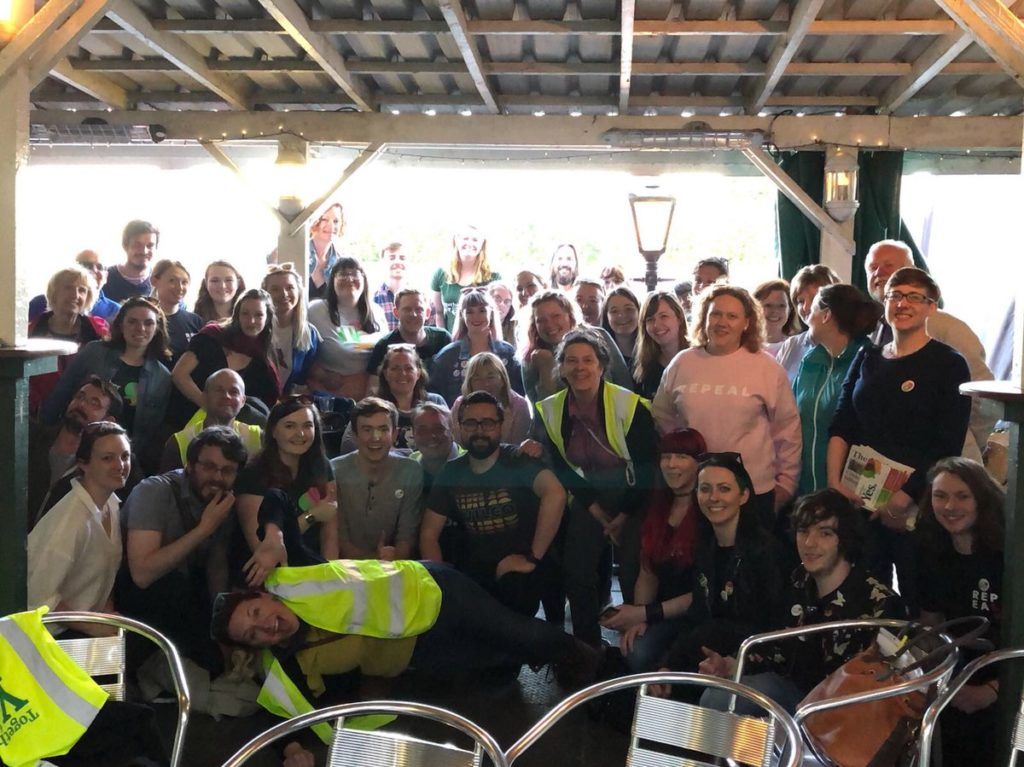I played a small part in the 2018 abortion referendum campaign in Limerick. It was one of the most profound experiences of my life and I will always be grateful for the opportunity to take part. My memories are imperfect, but six months on feels like a good time to get some of them down. They don’t represent a comprehensive account of the referendum campaign in Limerick, just my personal experience.
I attended my first campaign event in February. I was invited to talk about my experiences canvassing for the Marriage Equality referendum three years previously. I don’t think anyone was in any doubt that this was going to be a very different campaign. I was pretty sure we were going to lose. That marriage referendum made waves around the globe but the margin of victory wasn’t exactly emphatic in the end: 62/38. At the start of 2018, the polls showed some indication of support for repealing the eighth amendment, but Irish referenda tend to narrow significantly in the last two weeks of campaigning. Chatting with political friends from various parties I couldn’t find anyone who was remotely confident this was going to pass.
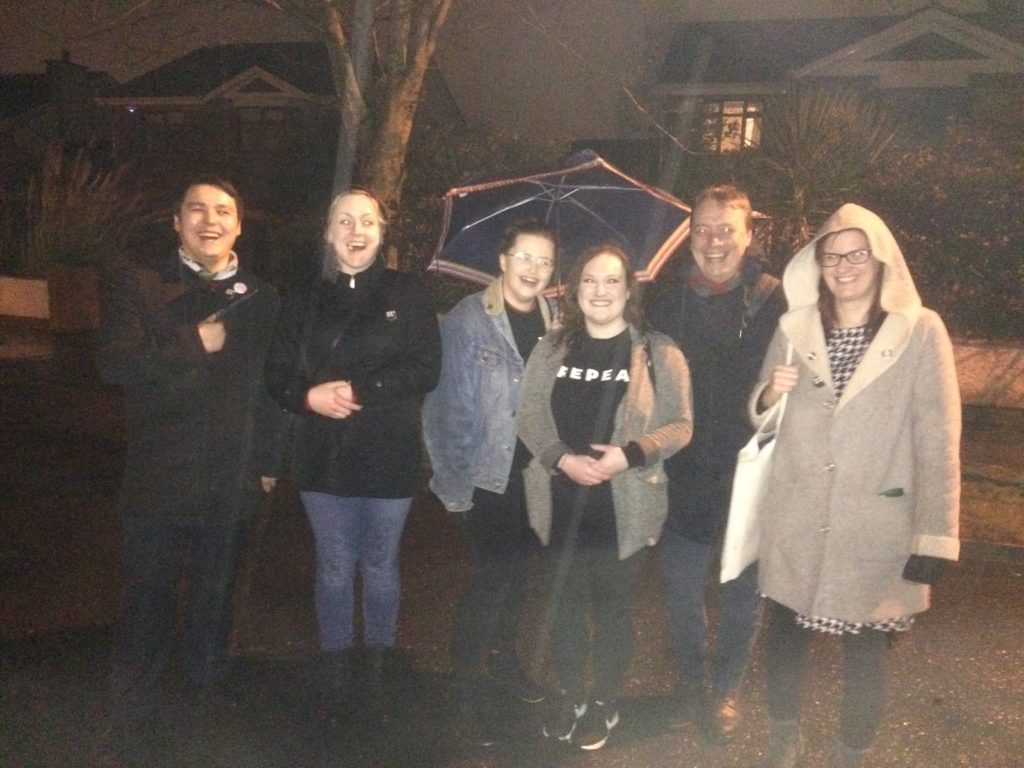
I remember thinking how lonely the campaign was going to be. I was determined to play my own part, to knock on doors and ask voters to show compassion for people in difficult situations. But I certainly couldn’t blame anyone for not wanting to come out on cold evenings to talk with strangers about the termination of pregnancy. It seemed especially cruel to ask women to knock on doors to ask for basic reproductive rights that would be available to them in the majority of countries around the world.
And yes it was small at the start. About six to ten canvassers for the first few nights. Not many canvassers for the third largest city in Ireland. The task felt impossible. We started two months out from the vote because we knew we had a lot of ground to cover. But at that stage in a referendum campaign, many voters aren’t fully engaged, they might only have a vague sense of what they’re going to be asked to vote on, and with a contentious issue like abortion, many were understandably reluctant to discuss it with strangers.
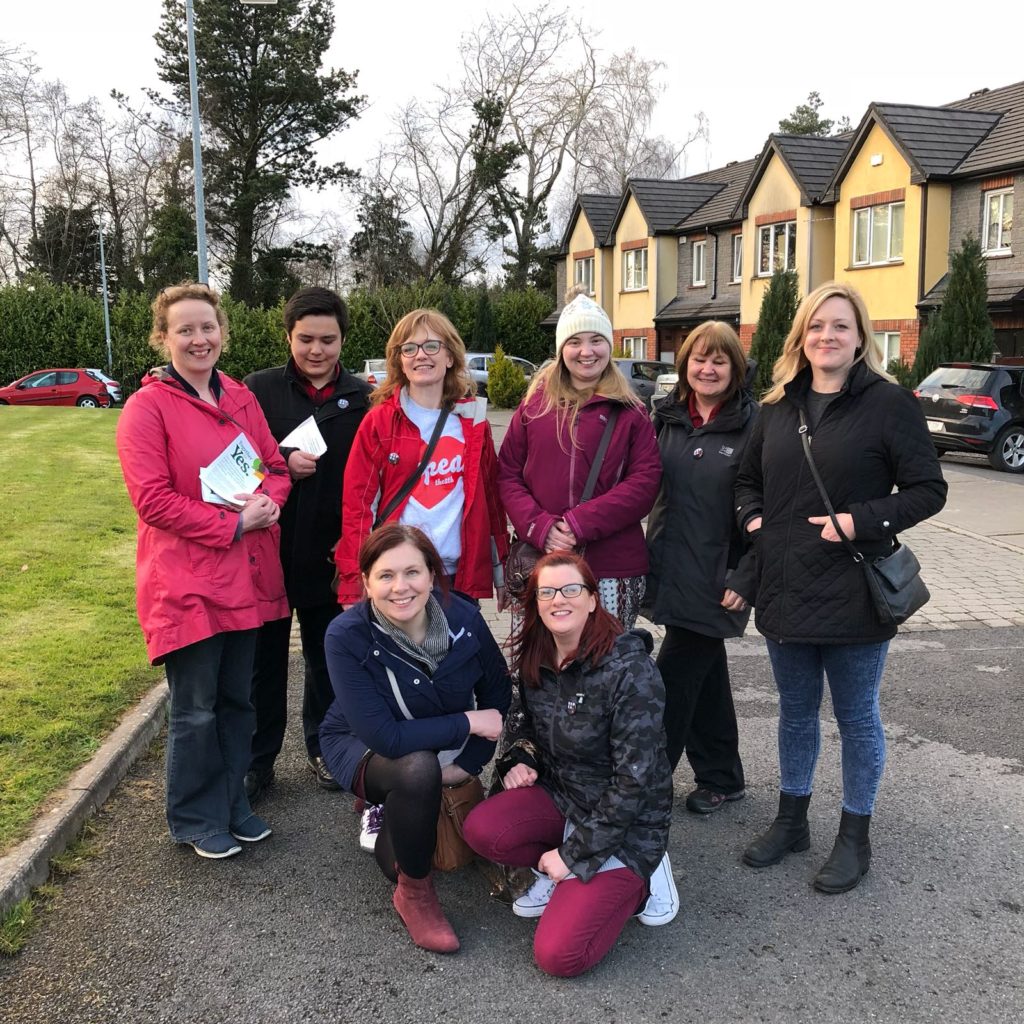
We trudged on. Three political parties had agreed to split the organising of the canvassing in the city into three: Jimi from the Social Democrats organised canvasses in the west of the city, Dave from Labour co-ordinated the east, and with my Green Party hat on I co-ordinated the north city. This involved an inordinate amount of poring over maps and spreadsheets which I think the three of us enjoyed more than we liked to admit, even if we did often find ourselves in the small hours of weekday mornings entering canvass returns or tracing an efficient route through an estate for the next day’s canvass. Members of Sinn Fein and Solidarity also joined us on the canvass. But most of the canvassers in Limerick were not party political and for most it was their first involvement in political action.
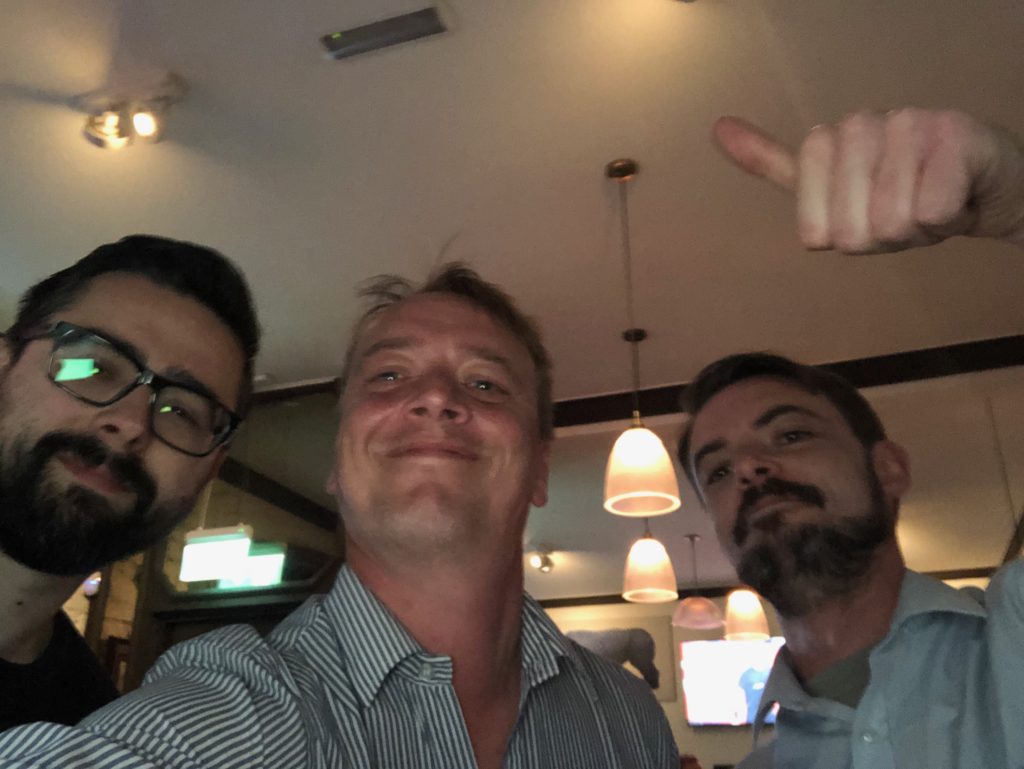
Canvassers knocked on the door in pairs, with at least one female in the pair. All canvassers had to attend training. We were as obsessed with not losing votes as much as gaining them. The people of Limerick are a polite and friendly lot, and the majority who answered their doors were lovely. But every canvasser experienced a small amount of uncivility, hostility and rudeness. And without exception our canvassers were polite, calm and dignified in return in response. We were not going to be provoked into losing a single vote. I should add that the vast majority of No voters we met were polite and reasonable. I respected (and still respect) their point of view.
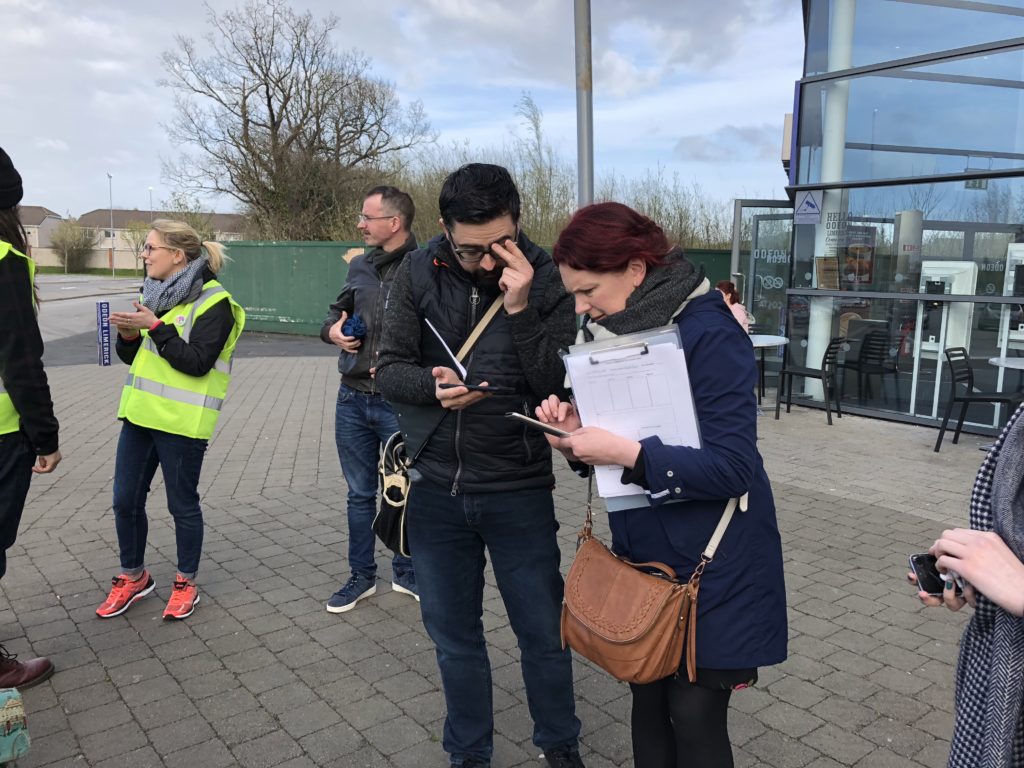
A month into the campaign, numbers had risen a bit, we had gone from three canvasses a week to six. It was clear that this campaign was going to be a lot bigger than we thought. We kept totals of everything, number of doors knocked on, the proportion that answered, the number that were “hard” yeses and nos versus the “softer” voters and the undecideds. I remember the first time we had more than twenty canvassers in the third week when we canvassed Ballynanty, I think that was my first time thinking that this campaign was going to be something really big.
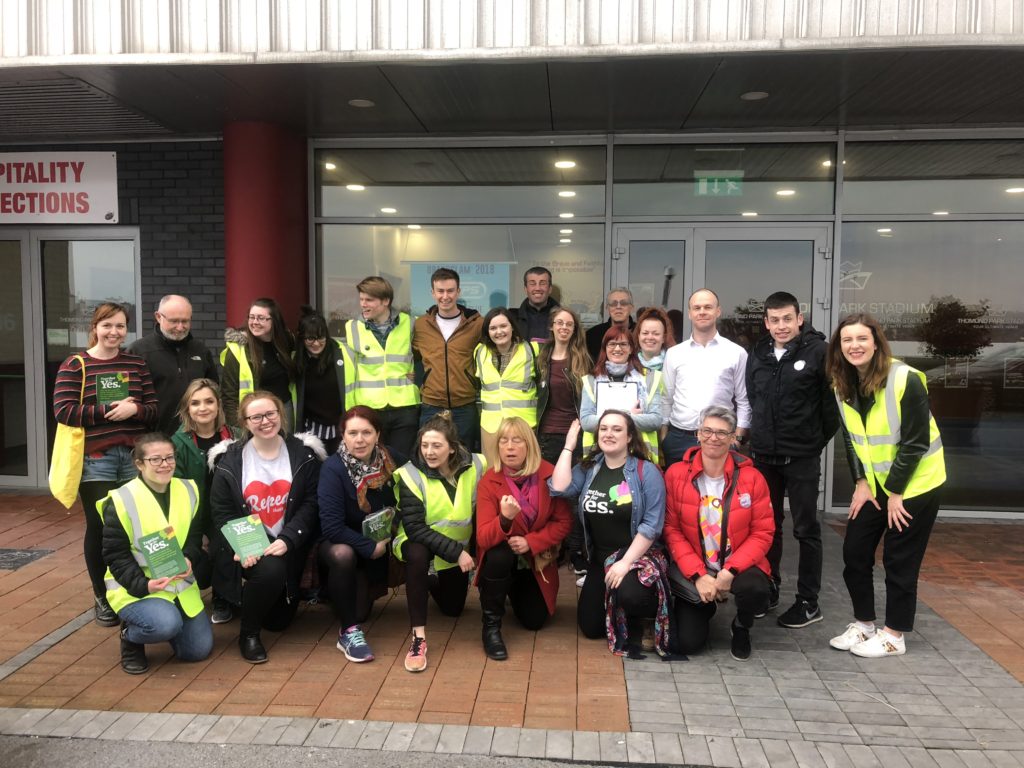
We were blessed with two incredible leaders, our chair Yvie and our deputy chair Jennifer, who worked absolutely tirelessly behind the scenes. They never once sought to be front and centre of the campaign, always wanting to empower others. They made sure a dizzying amount of small things got done, and made sure that we were always focused on the bigger picture. We would not have been half the campaign we ended up being without their leadership, and they taught me some very important lessons about leadership without ego.
There were an army of people behind the scenes too, whose work was often invisible yet vital. Fundraising, social media, volunteer management, designing badges and flyers, canvass organising, messaging and policy, training, much-needed aftercare for canvassers, there were so many jobs that people took on and gave up their evenings and weekends to undertake.
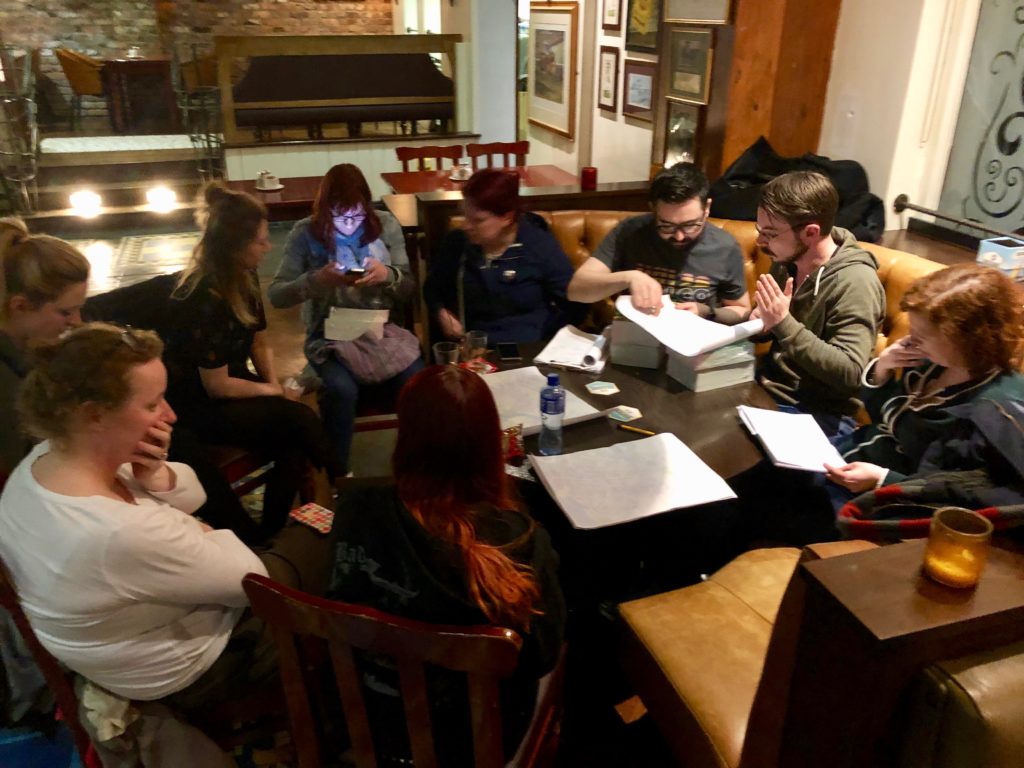
Everyone was stretched to breaking point. Most of us managed to burn out at least once during the campaign. The numbers of amazing people willing to campaign kept rising. We also had a fantastic group canvassing the rural areas. Canvassing with them made me realise that the old clichés of the rural/urban divide on social issues in Ireland was redundant – people in country areas were just as engaged, informed and willing to listen to our arguments.
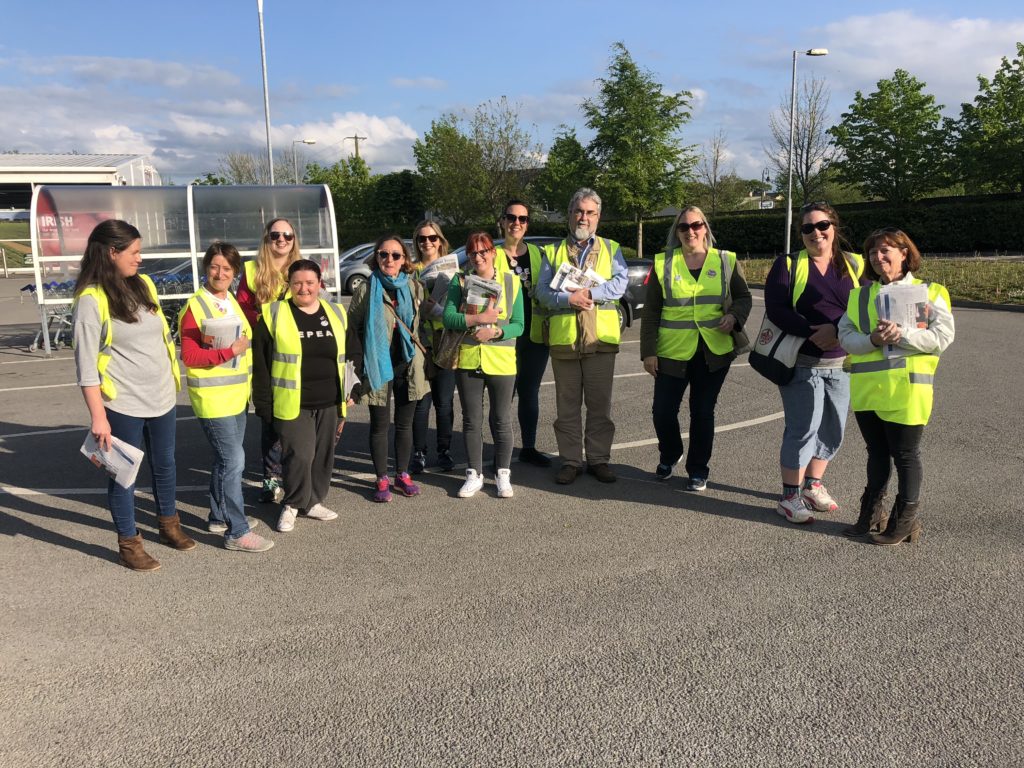
We also joined up with groups from other counties: we ran a joint canvass with the Clare campaign on the northern outskirts of Limerick, we helped a group in Charleville get started and canvass around South Limerick and North Cork. Paul Bowler from Kerry came up and helped to run training for male canvassers (which we quickly christened “manstraining”, to rhyme with “mansplaining”).
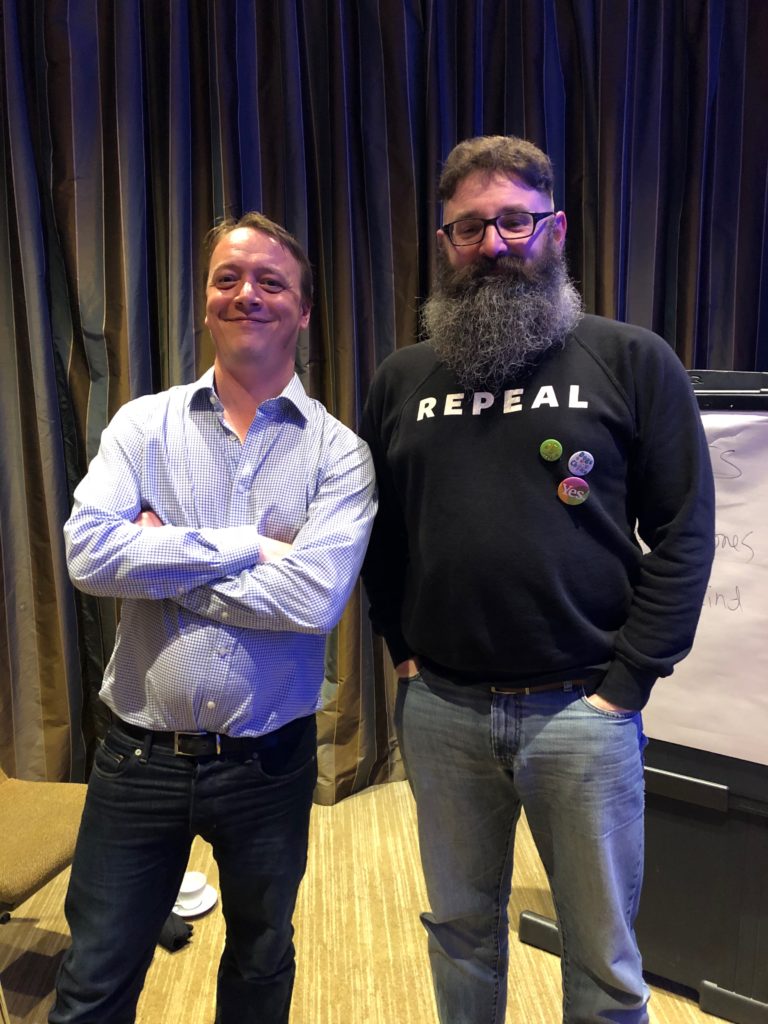
As a group we were from very different backgrounds and age groups, but I think we were similar in surprising ways. Most of us were quiet, and maybe even a bit shy. Most of us were incredibly nervous the first time we went canvassing and very few of us were ‘naturals’ on the doors. Yet I think we were all deeply motivated by a sense of justice and empathy for people in the most difficult of situations.
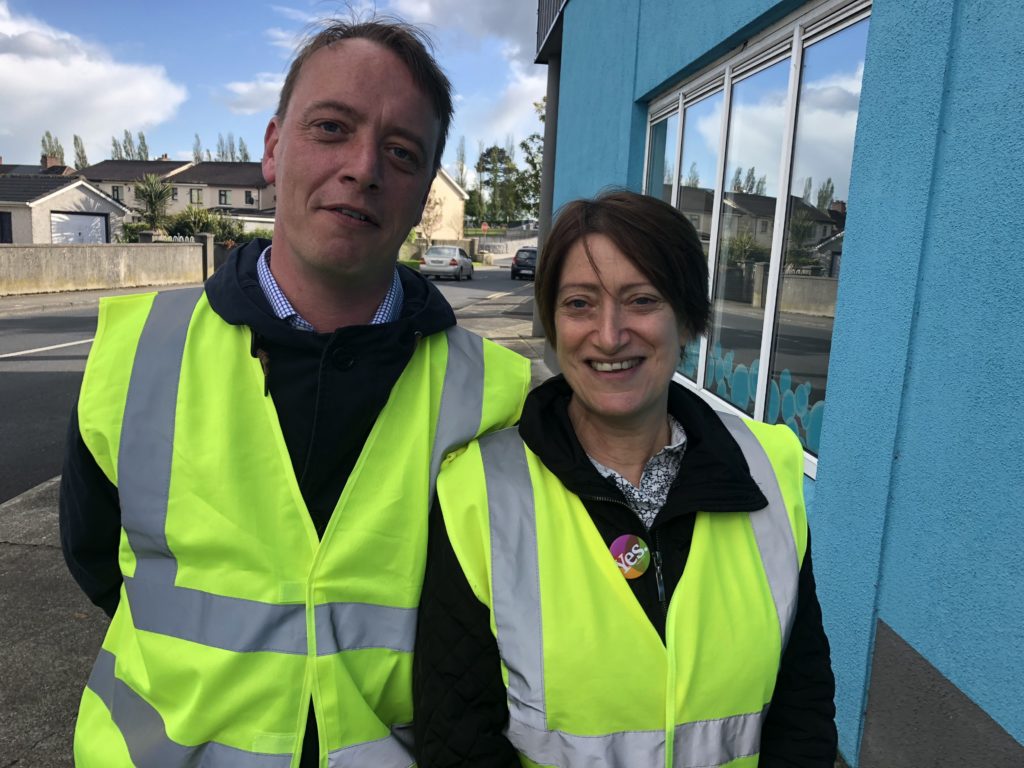
I can’t imagine how difficult it was for campaigners whose lives had been directly affected by the eighth amendment. Whether they chose to disclose their stories or not, I cannot begin to imagine the courage it took to open up their hearts to strangers, to encourage them to think about people in impossible situations.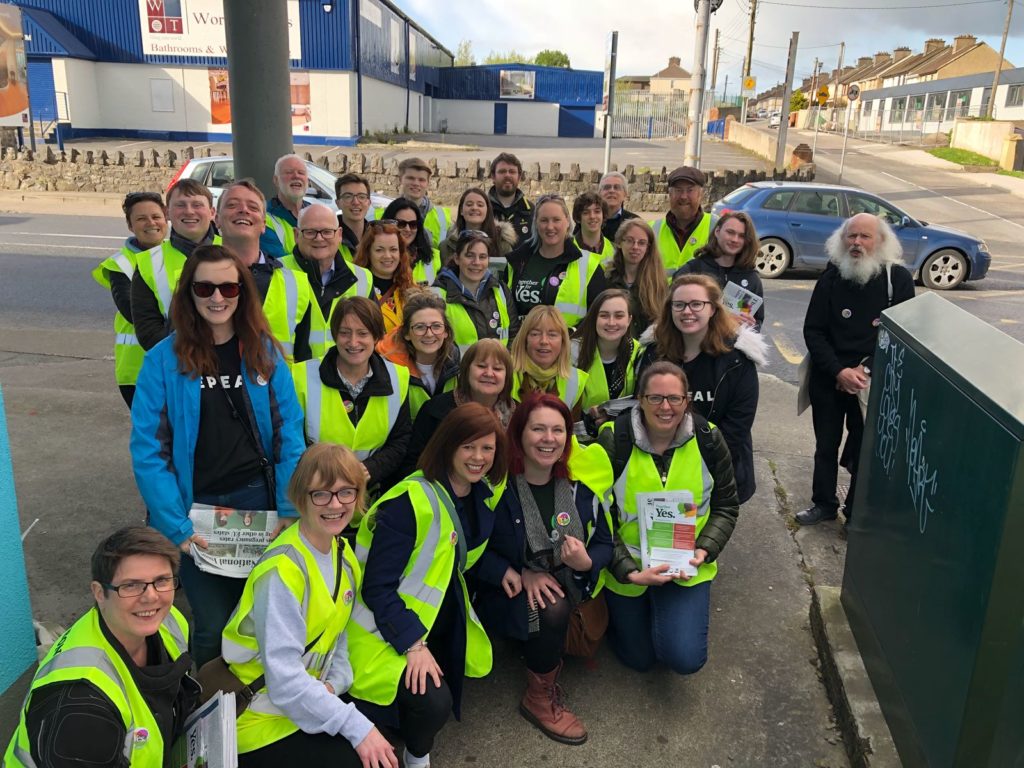
We didn’t only just have our own fears to deal with, we had the fears of voters to deal with as well. Fear of sexuality, fear of women, fear of talking about anything that goes on “down there”. The taboos and silence that surround so many aspects of sex and pregnancy. The grief of people who had suffered miscarriages. The voters who found themselves, unexpectedly, talking on their own doorstep about their own abortions, sometimes after decades of silence.
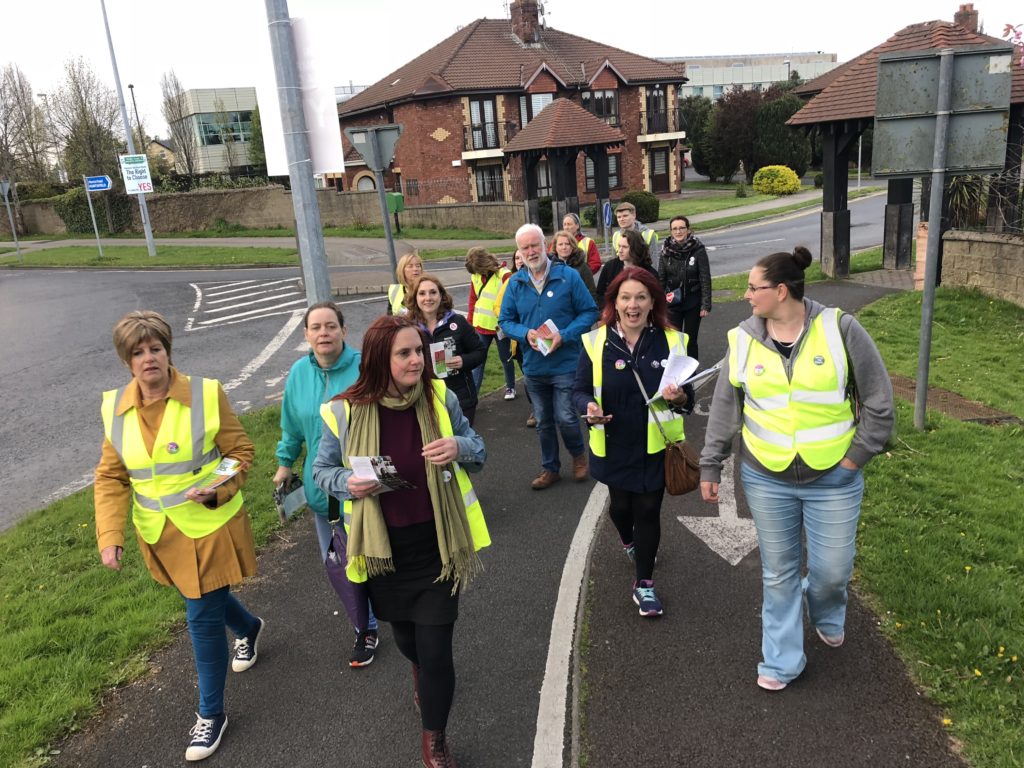
Through it all we trudged on. Over 25,000 doors knocked across Limerick City and County in two months. Hundreds of amazing canvassers, young and old, men and women. At the end we were an army. The last week of the campaign, we almost ran out of areas to cover. We organised a leaflet drop of every door in the Limerick City constituency. For the last day of the campaign, I took the day off work with my friend Niamh to cover the few corners of the county that we hadn’t reached, starting at 9am and 30,000 steps later finishing half-way up a mountain at the opposite end of the county at 7pm.
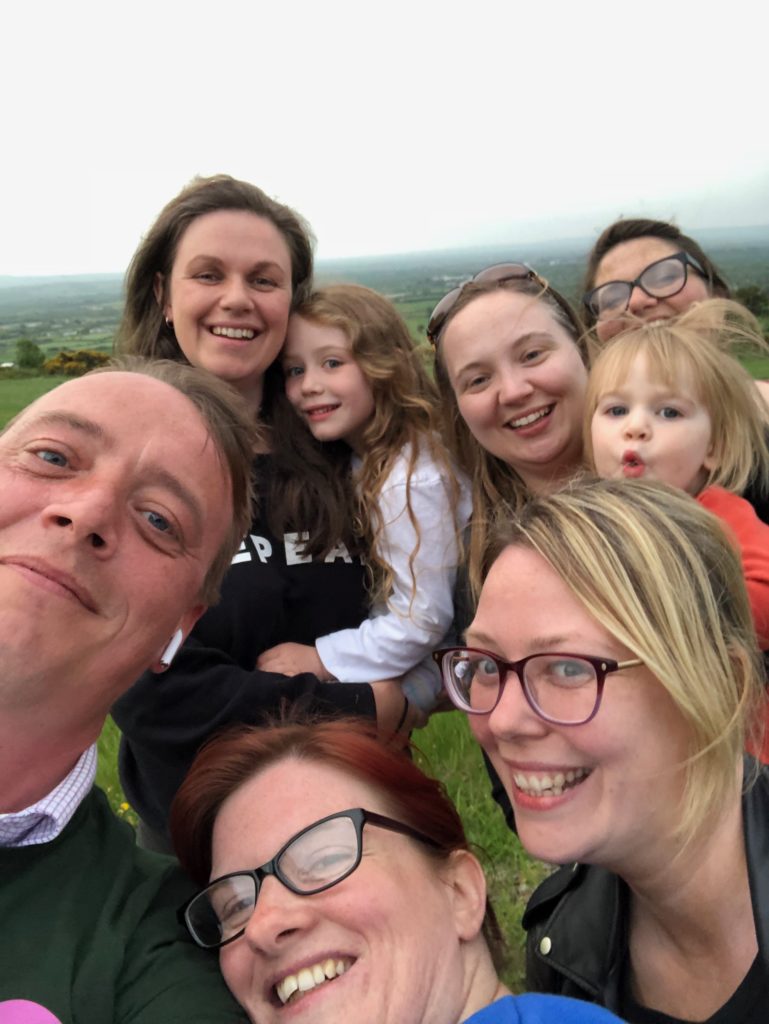
Of course we won, after the profound shock of the exit poll, which nobody quite believed. Some people even tried to claim that the result was a foregone conclusion. But in Limerick, like around the country, we knew it was a victory hard-won, by the some of most incredible people I’ve ever met.
I am deeply thankful to all the repealers in Limerick for the privilege of being able to campaign with them.
